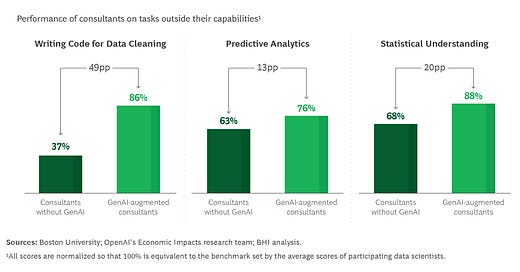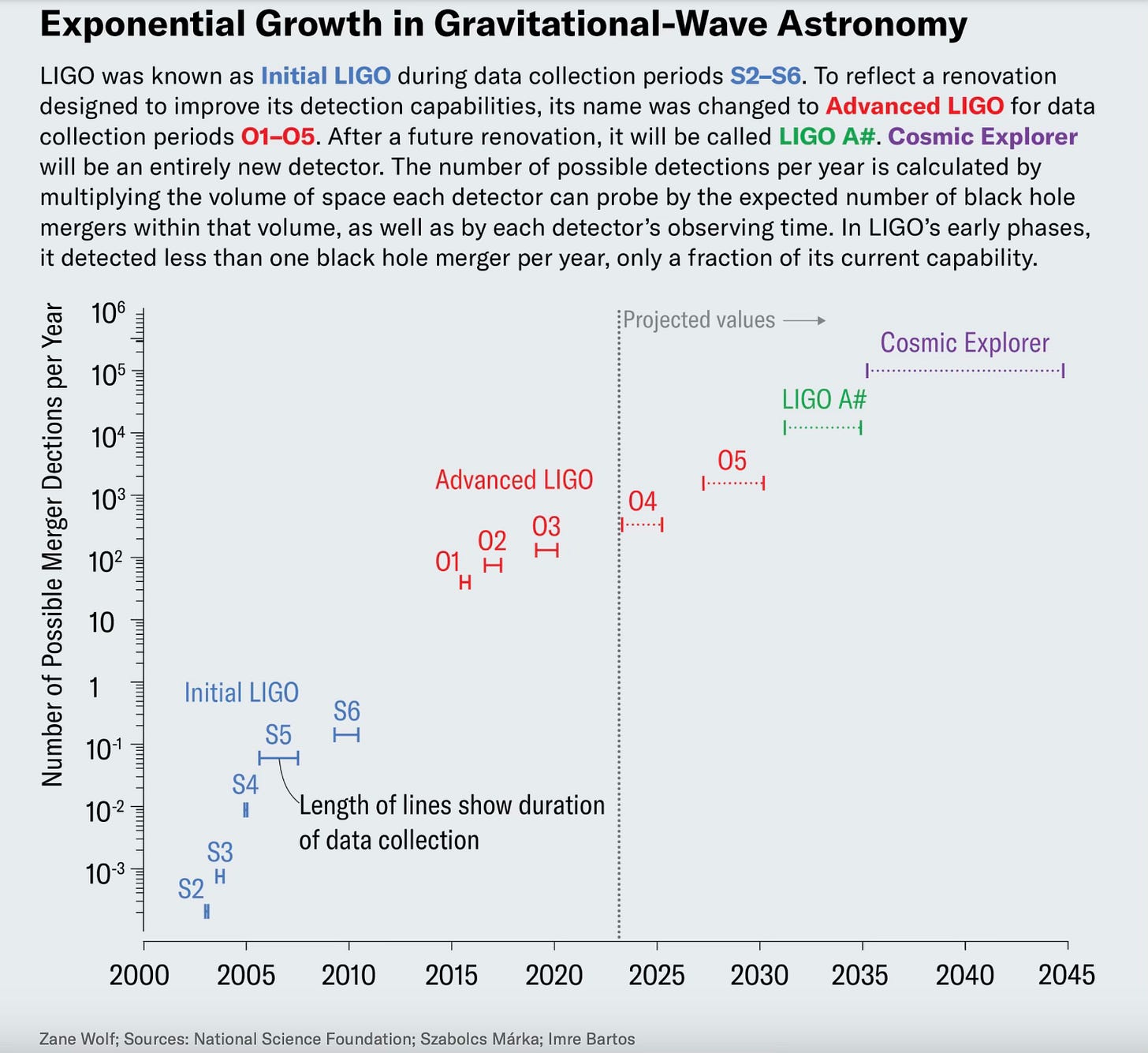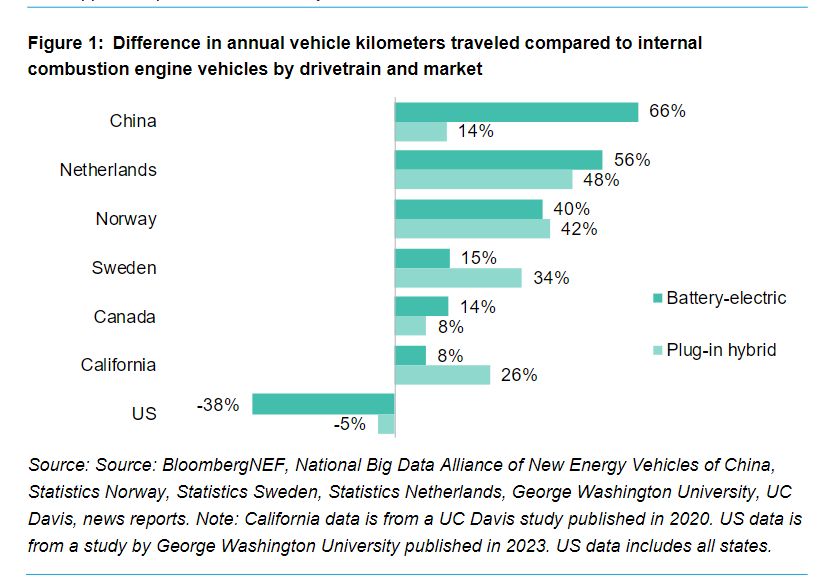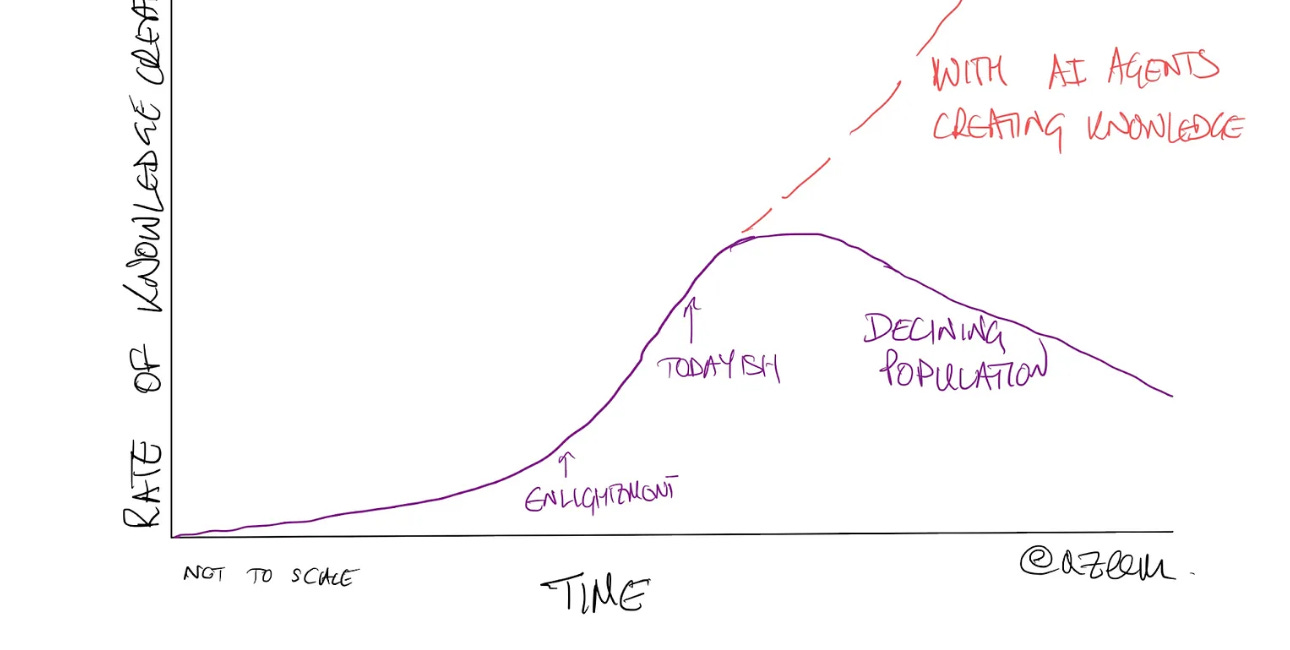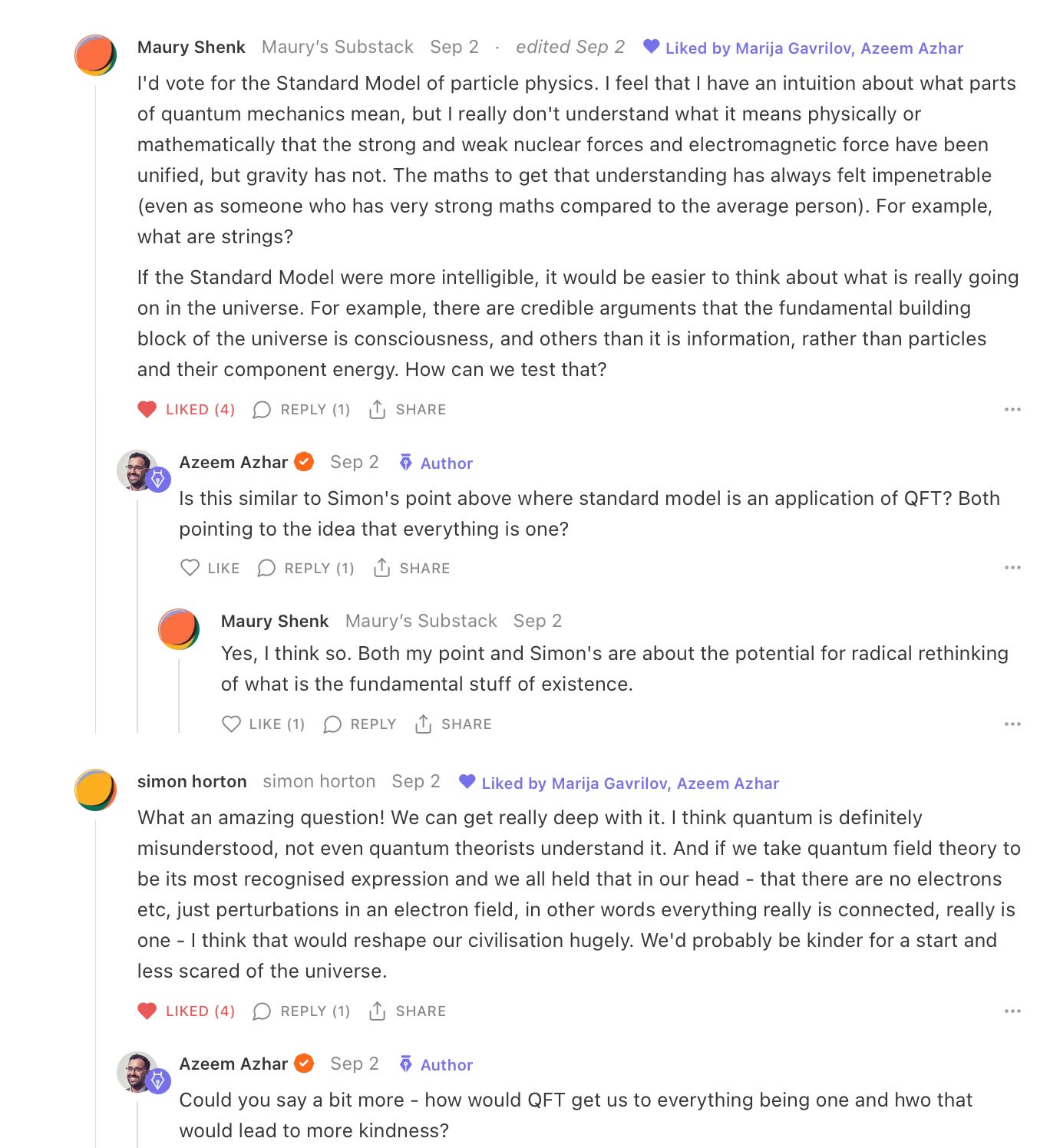🔮 AI exoskeleton; exponential space; new nuclear age; massive compute; home-first robot, Diverse Intelligence & Bluesky rises ++ #490
An insider’s guide to AI and exponential technologies
Hi, it’s Azeem. Welcome to the Sunday edition of Exponential View. Every week, I help you ask the right questions and think more clearly about technology and the near future. For more, see: Top Posts | Book | Speaking
THANK YOU for reading this newsletter, I hope you find it valuable. Significant parts of the Sunday edition will always be available for readers who choose not to pay for a subscription. But if you want to support our work and deepen your understanding of the Exponential Age, consider upgrading your membership for $10/month. You will receive every Sunday edition in its entirety, all of my essays and community access.
Ideas of the week
AI Exoskeleton
Does AI boost the performance of the least able employees or have no effect on their skills? The answer is “yes”– to both. In a new study from BCG, data scientists were pitted against non-specialists augmented by generative AI. On certain coding tasks, where a typical data scientist score is normalised to 100%, a non-specialist would score 37%. Once non-specialists were augmented by AI, their scores jumped to 86%. Improvements in performance happened across other technical tasks, too. When AI was taken away, however, the augmented workers showed no improvement in baseline technical skills. The upshot, if the finding holds, is that middling employees do better, but they don’t get better.
BCG’s previous study found that AI assistance can lead to increased errors; AI-equipped consultants were 19 percentage points more likely to err. To combat the over-reliance and complacency, the engineering mindset – the ability to break down complex problems and examine the components methodically – becomes the skill to nurture in the workplace.
See also:
EV member Gianni Giacomelli assessed AI’s impact on individual and collective intelligence in Part 1: The Challenge and Part 2: The solution is ours to shape.
Microsoft Copilot has underwhelmed in both sales and adoption. I expect the culprits may be many: corporate inertia, inadequate training or simply a product that doesn’t do the trick.
Startup Replit has released a coding agent in early access - it looks impressive.
Developers completed 26% more tasks when using GPT-3.5-powered github copilot in a randomised control trial.
A cosmic bargain
It took over half a century and more than $2 million to detect the first black hole in 2015. The cost of detecting a black hole collision from 2015 to 2035 is expected to fall by 99.9% to $2,000…
For subscribers only
From Russia with (right-wing) love
Democratic systems are struggling to get to grips with the exponential asymmetry of information while authoritarians are taking advantage of it.
For subscribers only
Material world
Novartis is investing over $200 million in its first isotope-production factory in the US. Isotopes1 are indispensable to the modern world…
For subscribers only
AI scaling commitments
More evidence has emerged of tech companies’ commitment to AI scaling.
For subscribers only
Data
A list of top genAI companies and their annual recurring revenue.
While the US EV market may be struggling, don’t take it as representative of the whole market.
China and India account for 86% of new coal power developments.
Ilya Sutskever’s Safe Superintelligence has raised $1 billion at a valuation of $5 billion.
Brazil’s ban of X led to Bluesky gaining 1 million new followers in the following three days.
Downsizing the heaviest 10% of vehicles in the US could reduce multi-car crash fatalities by 12%, saving 2,300 lives annually.
Inflation raised the time price of a standard food basket by 16%, requiring 36 more minutes of work in 2024 compared to 2019.
ChatGPT reports 200+ million weekly users, while Meta AI claims 400 million monthly users and 40 million daily users.
Short morsels to appear smart at dinner parties
🦾 1X demoed its home-first humanoid robot NEO. This is wild…
👀 Teens are making money on TikTok live-debating Harris vs. Trump.
Saturday reflections
In this week’s column, I write about how AI can help us solve two hard limits to human knowledge creation.
🤔 Why humanity needs AI
Humanity’s fundamental characteristic is its ability to create knowledge. This ability sets us apart from other species: our ability to create knowledge, compound it, develop tools and systems that apply it and foster more of it.
Community discussion
In the open thread this week, I asked members: Which scientific theory is most misunderstood?
Isotopes are atoms of the same element with the same number of protons but different numbers of neutrons. There are stable isotopes, which do not emit radiation and there are unstable isotopes, which do emit radiation. The latter are called radioisotopes. Both stable and radioisotopes are crucial to the modern world. For more, see: https://www.iaea.org/newscenter/news/what-are-isotopes

